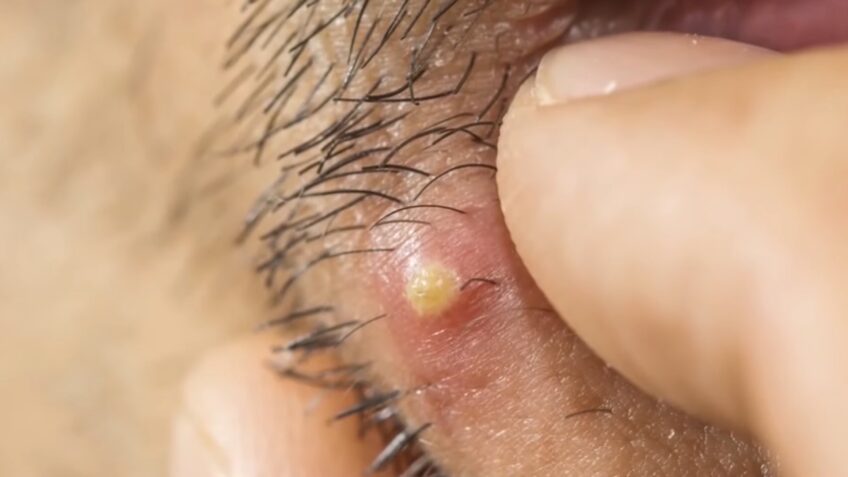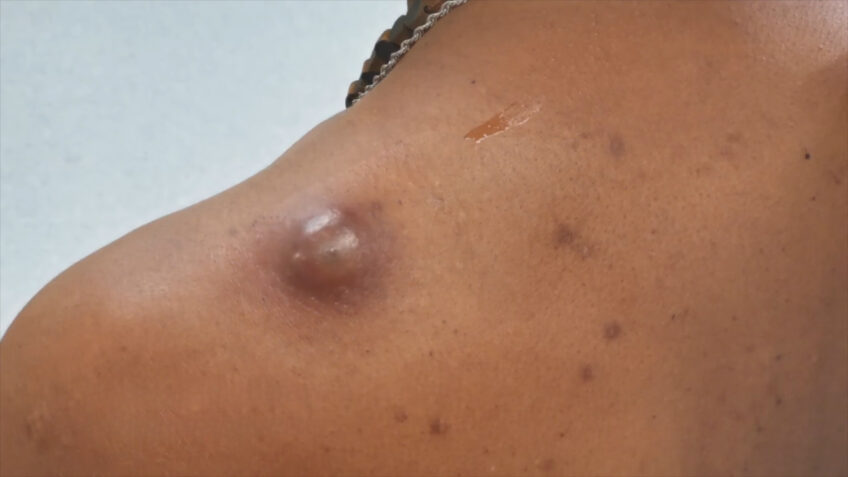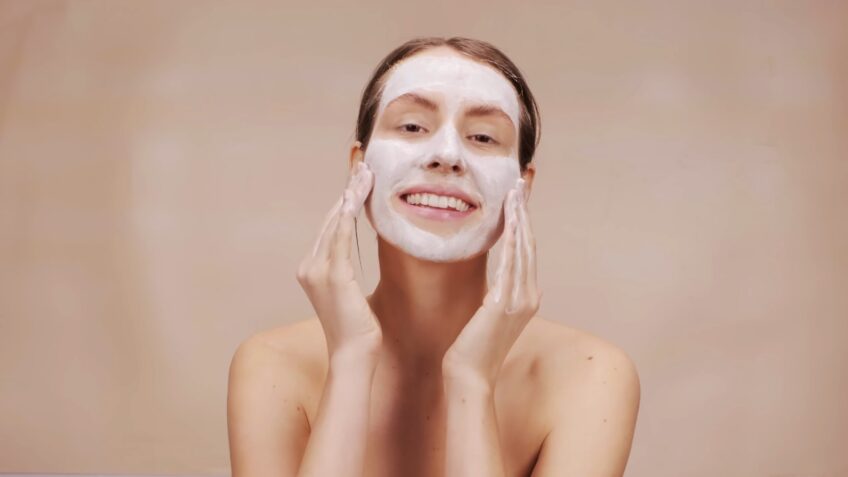In the realm of skin conditions, both boils and cysts are common occurrences. At first glance, they might seem similar, but there are distinct differences between the two. Understanding these differences is crucial not only for medical professionals but also for the general public, as it can guide decisions about treatment and prevention. In this article, we will delve deep into the characteristics, causes, and treatments of both boils and cysts, helping you discern one from the other.
Before diving into the specifics of boils and cysts, it’s essential to understand that our skin is a complex organ. It’s not just a protective barrier; it’s a living, breathing entity with multiple layers, glands, and functions. Occasionally, due to various reasons, lumps, bumps, and other abnormalities can form on the skin.
What is a Boil?

A boil, medically known as a furuncle, is a painful, pus-filled bump that forms under the skin. It’s the result of an infected hair follicle, usually caused by the bacterium Staphylococcus aureus.
Causes of Boils:
-
- Bacterial infection, primarily by Staphylococcus aureus.
- Friction from tight clothing.
- Poor hygiene.
- Compromised immune system.
Symptoms of Boils:
-
- Red, painful lump (it becomes more painful as it fills with pus).
- Yellow or white center (where the pus collects).
- Possible fever or swollen lymph nodes nearby.
What is a Cyst?

A cyst is a closed sac-like structure that can be filled with fluid, pus, or other material. Cysts can form anywhere on the body, inside or out. Unlike boils, they aren’t always caused by infections.
Causes of Cysts:
-
- Blocked ducts or glands.
- Infections.
- Chronic inflammatory conditions.
- Genetic conditions, like polycystic ovary syndrome.
- Tumors or growths (though most cysts are benign).
Symptoms of Cysts:
-
- A lump beneath the skin.
- The lump may be mobile or fixed.
- It might be painful if it’s pressing on a nerve or if it becomes infected.
- The skin around the cyst might be red or warm.
Key Differences
While both boils and cysts can appear as lumps on the skin, there are some key differences:
- Origin: Boils are primarily caused by bacterial infections, while cysts can have various origins, including blocked glands, genetic conditions, and more.
- Pain: Boils are generally painful, especially in their early stages. Cysts might not cause any discomfort unless they’re pressing on a nerve or become infected.
- Appearance: Boils tend to be red and inflamed with a visible center of pus. Cysts might appear more like a regular lump under the skin, without the redness or inflammation unless infected.
- Duration: Boils will usually rupture, drain, and heal within two weeks. Cysts can persist for longer periods and might even remain indefinitely unless treated.
Treatment Approaches
Boils:
-
- Warm compress: Helps reduce pain and encourages the boil to drain.
- Antibiotics: If the infection is severe or spreading.
- Incision and drainage: For large or persistent boils.
- Never squeeze a boil, as this can spread the infection.
Cysts:
-
- Observation: Many cysts don’t require treatment unless they’re causing discomfort.
- Drainage: A doctor can drain a cyst if it’s causing pain.
- Surgery: For problematic cysts, especially if there’s a risk of cancer.
- Medication: To treat any underlying infections or conditions.
Prevention Tips

Boils:
-
- Maintain good hygiene.
- Avoid tight clothing that causes friction.
- Treat cuts or wounds promptly to prevent infection.
Cysts:
-
- While not all cysts are preventable, you can reduce the risk by treating skin conditions, maintaining good skin hygiene, and monitoring any changes in your skin.
When to See a Doctor
Always consult a healthcare professional if:
- You’re unsure whether you have a boil or cyst.
- The lump is growing rapidly.
- You experience severe pain, fever, or other symptoms.
- The boil or cyst doesn’t improve with home remedies.
FAQs
Can boils or cysts lead to scars?
Yes, both boils and cysts have the potential to leave scars, especially if they are large, if they rupture on their own, or if they are improperly treated. It’s essential to avoid picking or squeezing them and to seek medical advice for proper treatment to minimize the risk of scarring.
Are there any home remedies to treat boils or cysts?
While warm compresses can help alleviate the pain of boils and encourage them to drain, it’s crucial not to rely solely on home remedies, especially if the condition worsens. Some people use tea tree oil or turmeric for their antibacterial properties, but always consult with a healthcare professional before trying any home treatments.
Can diet influence the occurrence of boils or cysts?
While there’s no direct evidence linking diet to the formation of boils or cysts, a healthy diet can boost the immune system, potentially reducing the risk of bacterial infections that lead to boils. Some believe that a high glycemic diet might influence cystic acne, but more research is needed in this area.
Are boils contagious?
Boils themselves are not contagious, but the bacteria causing them, primarily Staphylococcus aureus, can be spread through direct skin-to-skin contact, sharing personal items, or touching contaminated surfaces. It’s essential to maintain good hygiene and avoid sharing personal items to prevent the spread.
Can cysts turn cancerous?
While most cysts are benign, some types, depending on their location and nature, can have a potential to become cancerous. It’s crucial to monitor any cysts for changes in size, shape, or pain and to have them evaluated by a healthcare professional.
Is there a genetic predisposition to developing boils or cysts?
Some individuals might be more prone to developing boils due to a family history of them or because of conditions like hidradenitis suppurativa. Similarly, certain types of cysts, like ovarian cysts in polycystic ovary syndrome (PCOS), can have a genetic component. If recurrent skin issues are common in your family, it’s a good idea to discuss this with a doctor.
Final Words
Boils and cysts, though seemingly alike in appearance, have distinct characteristics and origins that set them apart. Recognizing these differences is not just a matter of academic knowledge but is vital for ensuring that the right treatment approach is taken.
Our skin, being the largest organ, often reflects our overall health, and any abnormalities should never be taken lightly. Prioritizing your well-being means being proactive about understanding these conditions and seeking expert advice when in doubt.
A medical professional’s guidance is invaluable in such scenarios, helping you navigate the complexities of skin conditions. Moreover, the importance of early detection cannot be overstated. Addressing these issues promptly can prevent complications, reduce discomfort, and, in some cases, be life-saving. In the journey of health, being informed and vigilant always pays off.

